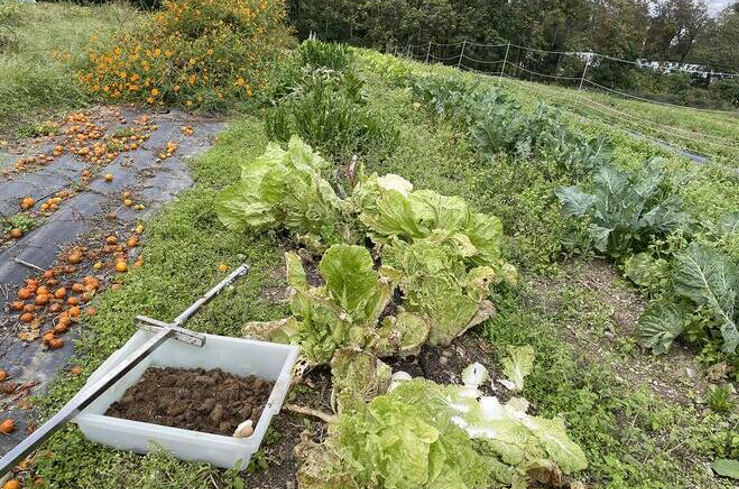Organic farmers’ beliefs about soil microbiome affect their practices, study shows

Published: August 12, 2024
Category: Organic News
By Marianne Stein
Organic farming can support soil microorganisms that promote plant defenses and reduce insect pests. But not all organic practices are equally beneficial for soil microbes, and it’s important to understand farmer motivations in order to encourage the adoption of microbiome-supportive efforts. A new study from the University of Illinois Urbana-Champaign and Cornell University looks at how organic farmers’ beliefs about the microbiome influence their soil management practices.
“There is very little research on what farmers think about the soil microbiome and what it means for which agricultural practices they adopt. In the long run, we want to understand organic farmers’ incentives to adopt microbiome-friendly practices from an economic perspective,” said co-author Shadi Atallah, associate professor in the Department of Agricultural and Consumer Economics, part of the College of Agricultural, Consumer and Environmental Sciences (ACES) at the University of Illinois.
The researchers surveyed 85 organic vegetable farmers in New York, gauging their microbiome beliefs, farming practices, and motivations. The farmers were also asked to provide soil samples from their fields.
The survey included a brief explanation of the interaction of soil microbes and plant defenses. Then, farmers were asked to indicate their agreement with a series of statements about factors that influence the soil microbiome, including on-farm practices such as no-till, cover cropping, or mulches; farm characteristics; external factors from bordering lands; and climate events.
“Overall, 96% of the farmers believed that the microbiome on their farm is influencing plant defenses and pest suppression. But there was much more variety in their beliefs about what factors promote a healthy microbiome,” said lead author Elias Bloom, postdoctoral research associate at Cornell.
The researchers identified seven belief clusters, based on the farmers’ agreement with the microbiome impact of on-farm practices, external factors, or a combination of those.
“We found that farmers who believed on-farm practices such as no-till or cover crops are important for influencing the microbiome also tended to adopt those practices. These beliefs are consistent with what the literature indicates are the preferred practices to support the microbiome,” Bloom said.
“Understanding why different farmers might select different practices based on what they believe about the microbiome is a first step to understanding how to incentivize certain kinds of organic practices. Eventually, there could be market incentives such as a microbiome-friendly ecolabel on food,” he added.
Bloom noted the work also relates to connections between the soil microbe and human health.
“What you put into your body influences your gut microbiome and your health. Similarly, what you put into your farm influences your soil microbiome and the health of your crops. There are important parallels between our work in organic agriculture and the soil microbiome to a broader interest in the public about the microbiome in general and how it influences all parts of our lives. We’re still just at the beginning of understanding how it all fits together in humans and within farming systems.”
The paper, “Motivating organic farmers to adopt practices that support the pest-suppressive microbiome relies on understanding their beliefs,” is published in Renewable Agriculture and Food Systems [DOI: 10.1017/S174217052400005X]. Funding for this work was provided by USDA AFRI Postdoctoral Fellowships (2021-67012-35042) and a USDA ORG Grant ( 2022-51106-38007).
Source: University of Illinois College of Agricultural, Consumer and Environmental Science
To view source article, visit: https://aces.illinois.edu/news/organic-farmers-beliefs-about-soil-microbiome-affect-their-practices-study-shows
Organic & Non-GMO Insights August 2024




